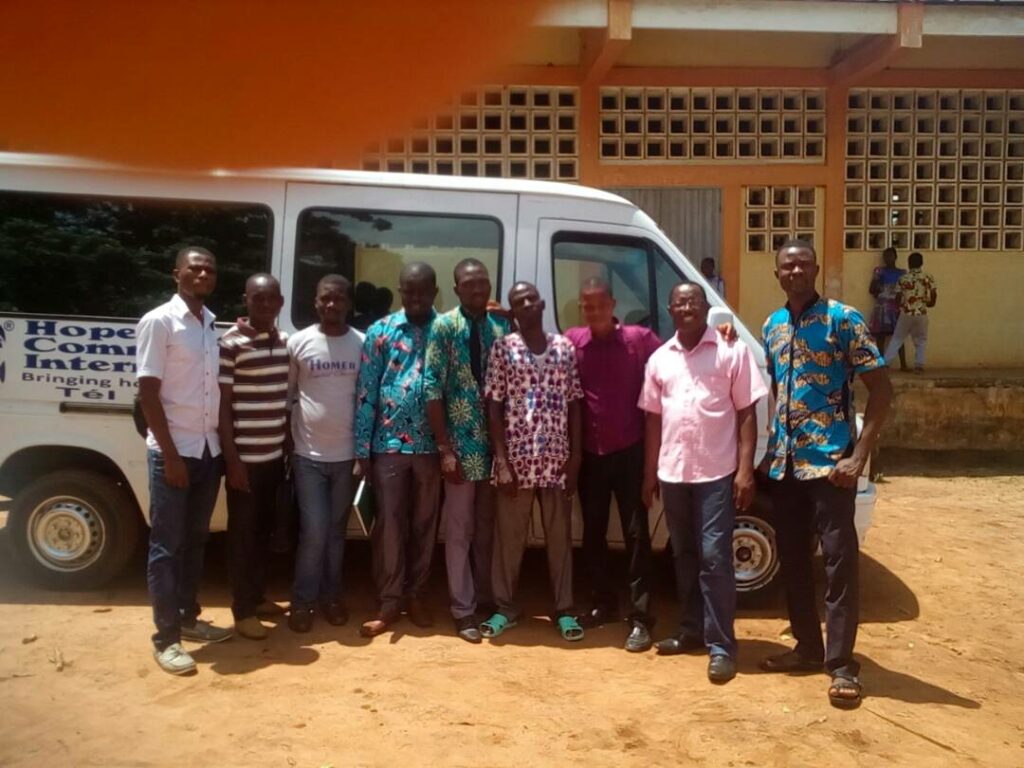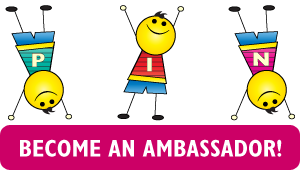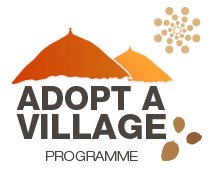HOW TO PREPARE FOR A MISSION TRIP TO BAZA ANTENNAS-TOGO
27 mai 2017 Entry Filed under: Baza TOGO,Blogs,Les activités de l'orphelinat CEHBED,Nos activités -

We are inviting volunteers, churches, ministries, group if students etc,,,,,to come and visite our orphanage and 20 Baza antennas in Togo.
“How much will this trip cost?”
Some costs are obvious, but others may sneak up on you if you have not done a trip like this before. Use this checklist to think through the different potential costs and ensure you have a realistic and complete estimate before you begin raising funds. Think through which costs you will raise funds for as a team and which ones you will ask your team members to cover on their own.
1: Projects cost
The first and most obvious cost is funds paid to the organization you are partnering with. Make sure to ask whether the materials for any projects or outreaches you are doing are included in this cost or paid separately. Also ask whether daily transportation is included or if you need to budget for these separately, and whether meals are provided or if you need to budget separately.
- Cost paid to your partner organization
- Project and/or outreach costs
- Transportation in country
- Meals in country
- Accommodations in country
2: Travel costs
If Flying:
The next largest cost for a mission trip is usually travel to and from the location you are serving. When estimating flight costs, make sure you budget a little high until your flights are actually reserved as ticket prices can go up without warning. When you are doing your initial research be aware that taxes and fees are often not included in the initial price quoted when you are searching on most travel sites.
If your team will be transporting tools or supplies in your baggage, you may need to budget for some excess baggage charges. Do you need to budget for food (or even a hotel) for a long layover? Will you need a place for your team to stay when you first arrive in country, or does the organization provide that?
Travel insurance is recommended for overseas trips; it is rare to need a medical evacuation but the cost is very high if it becomes necessary. Some organizations include this in the cost of your trip, while others recommend for you to purchase your own, so make sure to ask.
- Cost of flight (including taxes and fees)
- Excess baggage costs
- Food and/or accommodation during your travel or upon arrival
- Transportation from the airport
- Arrival fee or visa fee
- Travel insurance
If Driving:
If you are driving to location you are serving, make sure to account for fuel, meals, and accommodations along the way. Long road trips can often cause vehicles which seemed to be running fine to develop engine problems, and flat tires are common, so make sure that you have some emergency funds to cover this.
- Vehicle rental cost
- Fuel
- Meals and accommodation in transit
- Emergency car repairs
3: Administrative costs:
We will perform a background check for trip participants in other to protect our orphans.
The CDC has a list of vaccinations that are recommended based on the country you are traveling to. Some of these can take time to become effective, so make sure that everyone on your team contacts their doctor or travel clinic three months before departure
- Background checks
- Vaccinations
- Travel medications
- Passport application fee
4: Gear and supplies:
Are there any special gear or supplies that your team needs to have or purchase? Work-boots, gloves, tools? Outreach materials like books, art supplies, games? Will your team need camping supplies, cooking utensils, water filters, anything like that? Rain gear, sleeping bags?
To save space in bags, many teams will share common supplies like sunscreen, Gatorade powder, or toothpaste rather than having each member to bring their own personal supplies. Make sure you clearly communicate which supplies the team is purchasing and which supplies individuals are responsible for.
- Worksite tools
- Worksite protective gear (boots, hats, gloves, bandanas, etc…)
- Outreach supplies (bibles, books, tracts, games, art supplies, etc…)
- Camping gear (if needed)
- Cooking gear (if needed)
- Shared supplies (toothpaste, sunscreen, Gatorade powder, med kit, mouthwash, dental floss, etc…
5: Personal expenses:
Even if the organization you are traveling with is providing everything, you will still need some cash with you for incidentals. You should always have $100 cash with you to pay the deductible in case medical care becomes necessary. You will probably want to pick up some thank you gifts or souvenirs for your supporters (a bag of local coffee is always a winner!). Even though you will probably have the chance to send email during your trip, there is something fun about receiving a post card from another country, so you may need some money for postage. Plans tend to change during trips, so even if food is included in the trip you will want some cash to purchase snacks or street food
- Emergency medical deductible
- Thank you’s and souveniers
- Postage
- Incidental food and drink
I hope this list will serve as a good starting point for you to plan your mission trip with us !!
Entry Filed under: Baza TOGO,Blogs,Les activités de l'orphelinat CEHBED,Nos activités. Posted in Baza TOGO ,Blogs ,Les activités de l'orphelinat CEHBED ,Nos activités .



